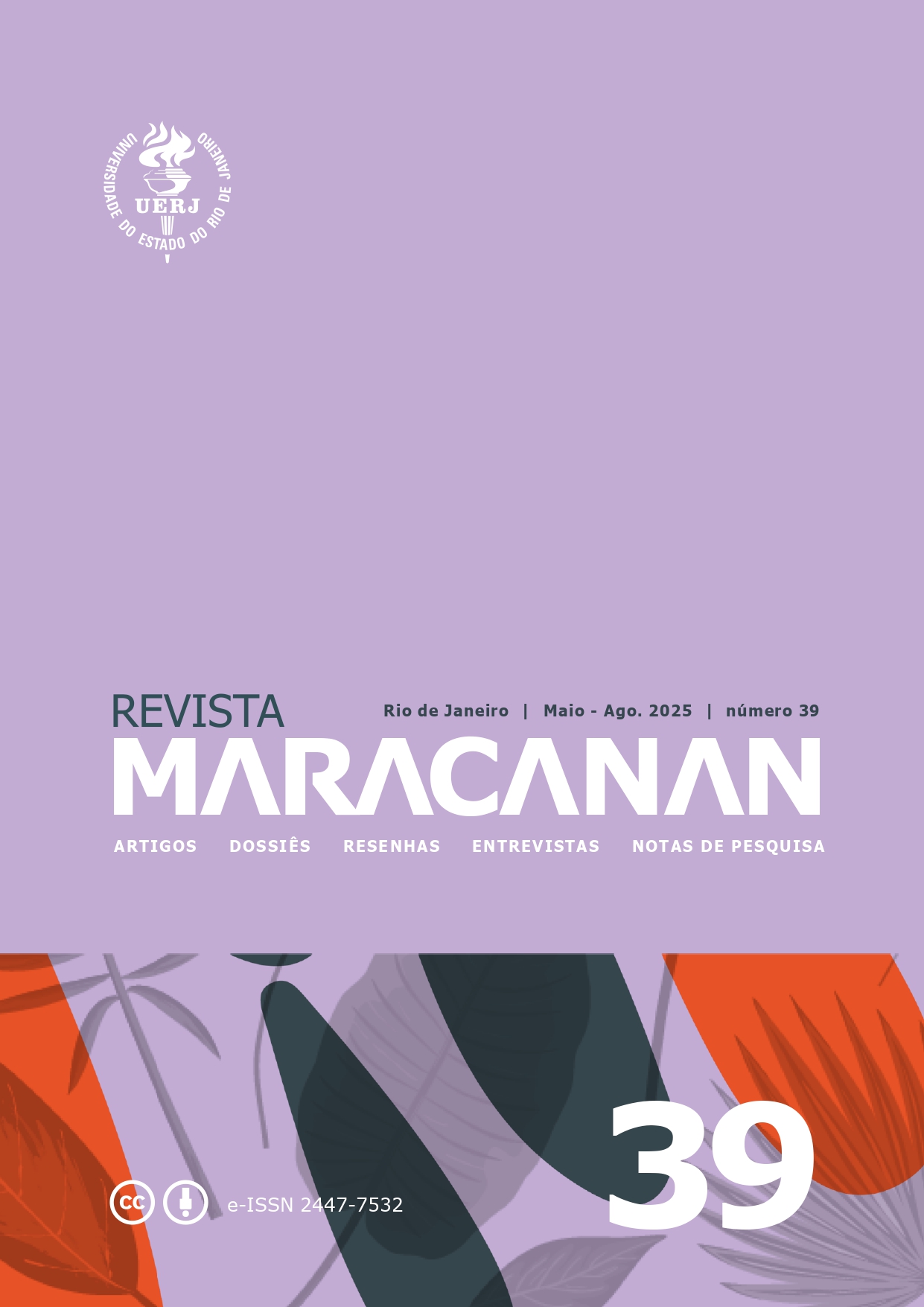Antonio Pedrozo de Albuquerque:
aspectos da riqueza de um capitalista no Norte do Império no último decênio da escravidão (1878-1879)
DOI:
https://doi.org/10.12957/revmar.2025.83129Palavras-chave:
Capitalismo, Escravidão, Brasil, Século XIXResumo
Antonio Pedrozo de Albuquerque foi proclamado na segunda metade do século XIX “Primeiro capitalista do Norte do Império” do Brasil. Ele, que havia feito fortuna no tráfico transatlântico, entre outras atividades, lícitas e ilícitas, faleceu em 1878, deixando bens avaliados no valor de mais de quatro mil contos de réis e, pelo menos, 560 escravizados e escravizadas. Em seu inventário foram contabilizadas propriedades existentes em Salvador, Ilha de Itaparica, Santo Amaro, São Francisco do Conde e Valença (BA), assim como ações e títulos em empresas no Brasil e em Portugal; outros bens, ainda desconhecidos, ficaram para sobrepartilha. Neste trabalho, debruçamo-nos sobre o documento de inventário inicial (1878-1879) de seus bens, buscando identificar a composição e a distribuição geográfica da sua riqueza e o perfil de sua escravaria. Dada à dimensão da sua fortuna e ao tamanho do seu plantel escravo, consideramos que o caso de Antonio Pedrozo de Albuquerque fornece importantes apontamentos a respeito dos padrões de investimentos e propriedade escrava entre as camadas mais abastadas no Norte do Império em seu decênio. Além disso, contribui para que se evidencie as possíveis confluências e especificidades entre os chamados capitalistas e/ou megaproprietários de indivíduos escravizados nas regiões Norte e Sul do Brasil. O texto está organizado em quatro partes: na primeira, de caráter introdutório, é realizado um apanhado do testamento do capitalista, assim como de sua trajetória; na segunda, terceira e quarta são abordados, respectivamente, a composição de seus bens, a distribuição geográfica de sua riqueza e o perfil dos trabalhadores e trabalhadoras por ele escravizados.
Referências
ALMICO, Rita. Fortunas em movimento: um estudo sobre as transformações na riqueza pessoal em Juiz de Fora /1870-1914. 2001. Dissertação (Mestrado em História) – Universidade Estadual de Campinas, Campinas (SP), 2001.
ARAÚJO, Nilton Almeida. Pioneirismo e hegemonia: a construção da agronomia como campo científico na Bahia (1832-1911). 2010. Tese (Doutorado em História) – Universidade Federal Fluminense, Niterói (RJ), 2010.
CALMON, Francisco Marques de Góes. Vida Econômico-Financeira da Bahia: elementos para a história de 1808 a 1899. Salvador: Fundação de Pesquisas CPE, 1979.
MARRETO, Rodrigo Marins. O opulento capitalista: café e escravidão na formação do patrimônio familiar do Barão de Nova Friburgo. (c.1829-c.1873). 2019. Tese (Doutorado em História) – Instituto de História, Universidade Federal Fluminense, Niterói, 2019.
MATTOS, Hebe Mattos. Raça e Cidadania no Crepúsculo da Modernidade Escravista. In: GRINBERG, Keila; SALLES, Ricardo (Org.) O Brasil Imperial. Vol. III: 1870-1889. Rio de Janeiro: Civilização Brasileira, 2014.
MATTOSO, Kátia. Bahia, século XIX: uma província no Império. Rio de Janeiro: Nova Fronteira, 1992.
MOURA FILHO, Heitor Pinto de. Câmbio de longo prazo do mil-réis: uma abordagem empírica referente às taxas contra a libra esterlina e o dólar (1795-1913). Cadernos de História, PUC-Minas, Belo Horizonte, v. 11, n. 15, p. 9-34, out. 2010.
NASCIMENTO, Anna Amélia Vieira. Dez freguesias da cidade do Salvador: aspectos sociais e urbanos do século XIX. Salvador: EDUFBA, 2007.
PESSOA, Thiago Campos. A indiscrição como ofício: o complexo cafeeiro revisitado (Rio de Janeiro, c. 1830 – c. 1888). 2015. Tese (Doutorado em História) – Universidade Federal Fluminense, Niterói (RJ), 2015.
ROCHA, Uelton Freitas. “Recôncavas” fortunas: a dinâmica da riqueza no Recôncavo da Bahia (Cachoeira, 1834-1889). 2015. Dissertação (Mestrado em História) – Universidade Federal da Bahia, Salvador, 2015.
SALLES, Ricardo. E o Vale era Escravo: Vassouras, século XIX, senhores e escravos no coração do Império. Rio de Janeiro: Civilização Brasileira, 2008.
SANTOS, Silvana Andrade dos. Escravidão, tráfico e indústria na Bahia oitocentista: a sociedade Lacerda e Cia e a fábrica têxtil Todos os Santos (c.1844-c.1878). 2020. Tese (Doutorado em História) – Universidade Federal Fluminense, Niterói (RJ), 2020.
SILVA, Denise Morais Gouveia. Comprando soldados: escravidão, liberdade e recrutamento na Guerra do Paraguai. 2022. Tese (Doutorado em História) – Universidade Federal do Estado do Rio de Janeiro, Rio de Janeiro, 2022.
XIMENES, Cristiana. Joaquim Pereira Marinho: perfil de um contrabandista de escravos na Bahia, 1828-1887. 1999. Dissertação (Mestrado em História) – Universidade Federal da Bahia, Salvador, 1999.
Downloads
Publicado
Como Citar
Edição
Seção
Licença
Copyright (c) 2025 Silvana Andrade dos Santos

Este trabalho está licenciado sob uma licença Creative Commons Attribution 4.0 International License.
Os autores mantêm os direitos autorais e concedem à Revista Maracanan o direito de publicação, sob uma Licença Creative Commons Atribuição 4.0 Internacional, a qual permite que outros distribuam, remixem, adaptem e criem a partir do seu trabalho, mesmo para fins comerciais, desde que lhe atribuam o devido crédito pela criação original.
Os dados e conceitos abordados são da exclusiva responsabilidade do autor.
A Revista Maracanan está licenciada com uma Licença Creative Commons Atribuição 4.0 Internacional.





